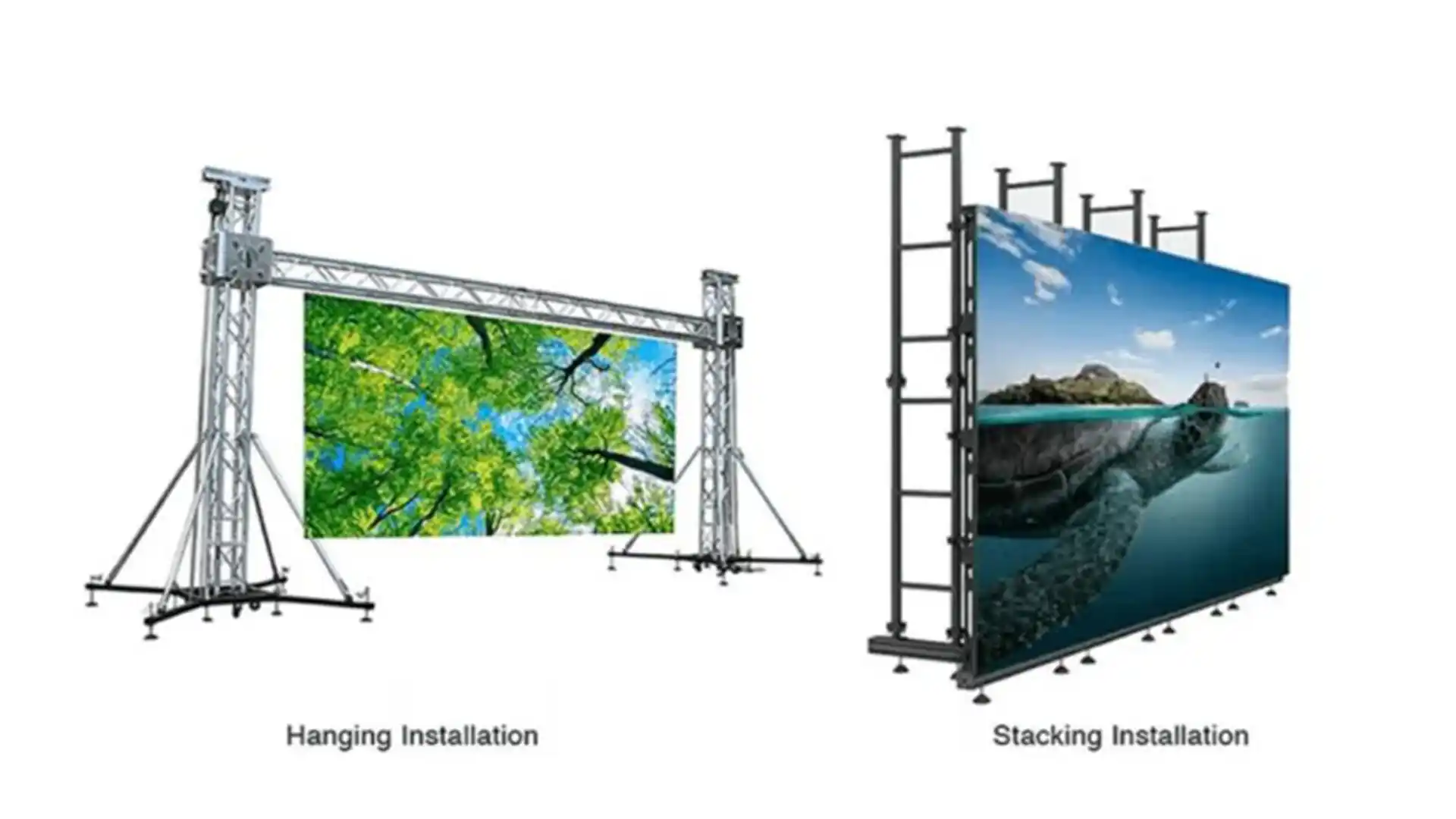
In today’s event industry, rental LED displays are essential for creating visually stunning experiences. Whether it's a concert stage, corporate event, or outdoor festival, these high-tech screens capture attention and elevate production value.
However, with the rise of large-scale temporary installations comes an increased responsibility to ensure safety. Improper setup can lead to equipment damage, injuries, and even legal consequences. That’s why following proper safety protocols is not just a best practice — it’s a necessity.
This guide walks you through 7 critical steps to safely install rental LED displays, ensuring both your crew and audience stay protected while delivering top-notch visual impact.
Before lifting any panels, perform a detailed structural analysis of the venue:
Check Ceiling Load Capacity: Always consult with the venue engineer before hanging heavy displays.
Calculate Total Weight: Include the weight of LED cabinets, rigging hardware, trusses, and any additional lighting or effects.
Factor in Dynamic Loads: Add a minimum 30% safety margin to account for wind pressure or vibration during live performances.
Choosing the right support system depends on display size:
| Display Size | Recommended Support System | Wind Resistance |
|---|---|---|
| Under 20m² | Truss systems with base weights | Up to 45 mph gusts |
| 20–100m² | Engineered aluminum frames | Up to 55 mph gusts |
| Over 100m² | Custom steel structures | Requires site-specific engineering |
Modern rental LED cabinets come equipped with advanced safety features:
Interlocking Panels: Prevent accidental disconnection
Load Sensors: Monitor cabinet weight distribution in real time
Failsafe Connectors: Automatically lock if tension changes unexpectedly
Weatherproof Design: Ideal for outdoor events
For suspended setups:
Use aircraft-grade steel cables rated for the load
Install redundant safety chains for backup
Add anti-sway dampeners to prevent movement
Perform daily tension checks throughout the event
These practices help reduce risk and increase installation stability.
Electrical hazards are among the most common risks in temporary setups. Protect your team and audience by:
Using GFCI (Ground Fault Circuit Interrupter) outlets to prevent shocks
Balancing electrical loads across circuits to avoid overloads
Installing emergency shut-off switches within easy reach
Running power cables through weatherproof troughs for outdoor use
Always work with certified electricians and follow local electrical codes.
Outdoor events require extra planning to handle unpredictable conditions:
Set up real-time weather monitoring systems
Program automatic shutdown triggers based on wind speed
Apply hydrophobic coatings to screens for rain protection
Maintain at least 8 feet clearance between the display and the audience
Install anti-climb barriers around ground-based structures
Route cables through protective covers to prevent tripping hazards
Being proactive about environmental threats helps avoid last-minute cancellations or accidents.
Even the safest installations need regular checks. Conduct daily inspections that include:
Structural Integrity Check: Look for loose connectors or compromised mounts
Connector Corrosion Test: Especially important for humid or rainy environments
Load Distribution Verification: Confirm weight remains evenly balanced
Emergency System Tests: Ensure backup systems and cutoff switches work properly
Document all findings and address any issues immediately.
Your crew’s safety starts with having the right tools and equipment:
Harnesses Rated for Working Heights: For高空作业
Non-Conductive Tools: To prevent electrical accidents
Arc-Flash Protection Gear: Essential when working near high-voltage equipment
RFID-Enabled Helmets: Help track personnel on large job sites
Training and preparation go hand-in-hand with physical safety gear.
Once the event concludes, don’t skip the debrief phase:
Document all safety incidents and near-misses
Update your risk assessment matrix with new data
Hold team debriefings to identify areas for improvement
Share lessons learned with future project teams
A thorough post-event review helps build safer processes for every future installation.
Investing in safety isn't just about avoiding liability — it's a strategic advantage. By following these 7 steps, rental companies can:
Reduce insurance costs by up to 40%
Secure high-profile contracts with major brands
Extend the lifespan of expensive LED equipment
Establish a reputation as a trusted service provider
Safety should never be seen as optional — it's the foundation of successful, professional installations.
Installing rental LED displays safely requires more than technical knowledge — it demands planning, precision, and professionalism. From structural assessments to daily maintenance checks, each step plays a vital role in protecting people, equipment, and your brand reputation.
By implementing this step-by-step guide, you’ll be well-prepared to deliver stunning visual experiences without compromising on safety standards.
Hot Recommendations
Hot Products
Get a Free Quote Instantly!
Talk to Our Sales Team Now.
If you are interested in our products, please contact us promptly
Reach out to our sales team to explore customized solutions that perfectly meet your business needs and address any questions you may have.
Email Address:info@reissopto.comFactory Address:Building 6, Huike Flat Panel Display Industrial Park, No. 1, Gongye 2nd Road, Shiyan Shilong Community, Bao'an District, Shenzhen city , China
whatsapp:+8615217757270